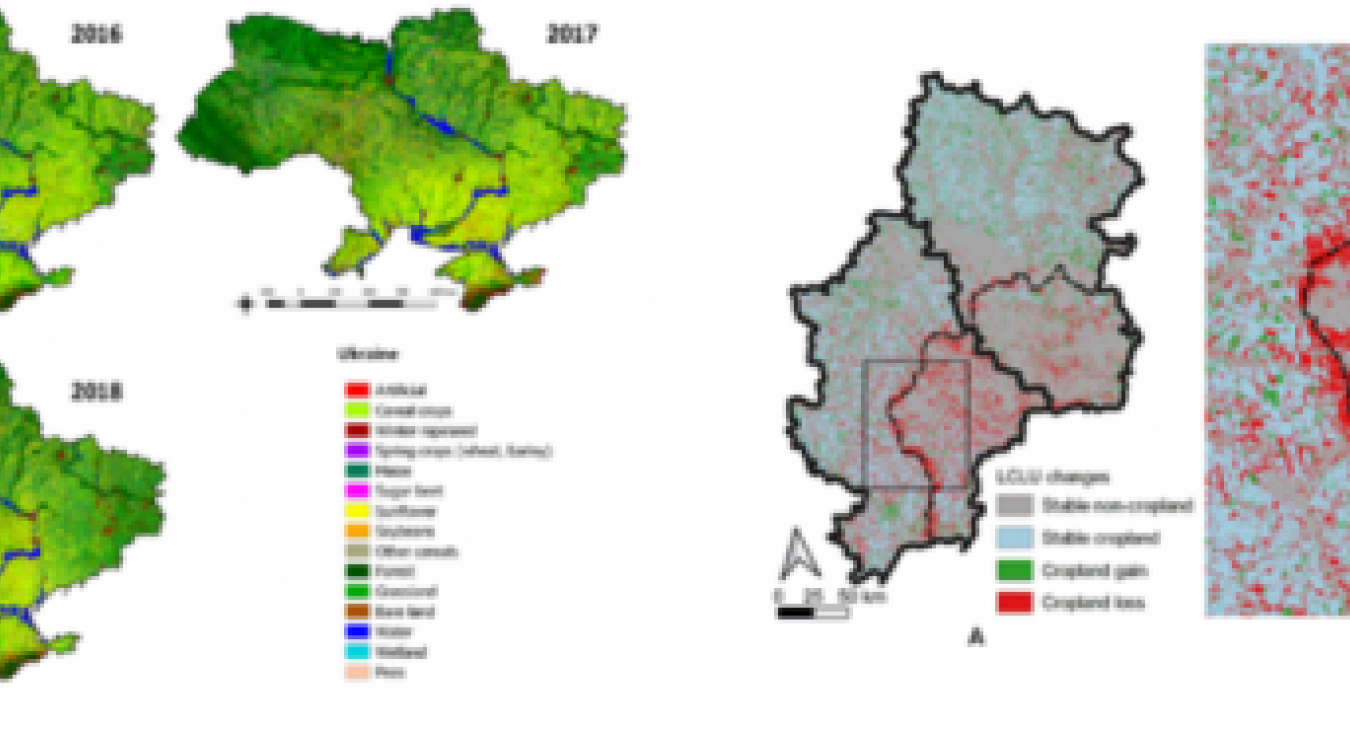Ukraine has experienced major land cover and land use changes (LCLUC) in recent decades. The overall objective of this study is to analyze and quantify the impact of LCLUC in Ukraine targeting agricultural, forestry, and urban sectors.
Since the breakup of the Soviet Union in 1991, Ukraine has been experiencing major changes in land cover and land use (LCLUC). The major drivers for these changes have been continuous economical and policy changes as well as climate variability. In the past 5-7 years, these changes particularly magnified due to the military conflict in the Eastern Ukraine and annexation of Crimea, preparation of the policy to open the land market, conversion to double cropping due to temperature increase and a sharp increase in the production of industrial crops, and continuous practice of burning agricultural fields. All these have led to the LCLUC “hotspots” throughout the country spanning several sectors (agriculture, urban and forestry) and having considerable socio-economic impacts. Therefore, Ukraine represents a perfect testbed with multiple LCLUC “hotspots” of national and regional importance that have a significant socio-economic impact and are policy relevant. The overall objective of the proposal is to analyze and quantify the impact of LCLUC in Ukraine targeting agricultural, forestry, and urban sectors. The obtained results are expected to have a significant impact on policy, as generated maps and LCLUC quantifications would allow decision-makers and local authorities to gather objective information on processes occurring in conflict-plagued regions in Ukraine and project future relief effort expenses; obtain objective information on land, including those unregistered in the official GeoCadaster system, which is essential for future land markets; enact and improve existing policies related to crop rotation violation and open field burnings.

